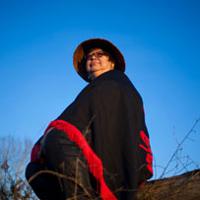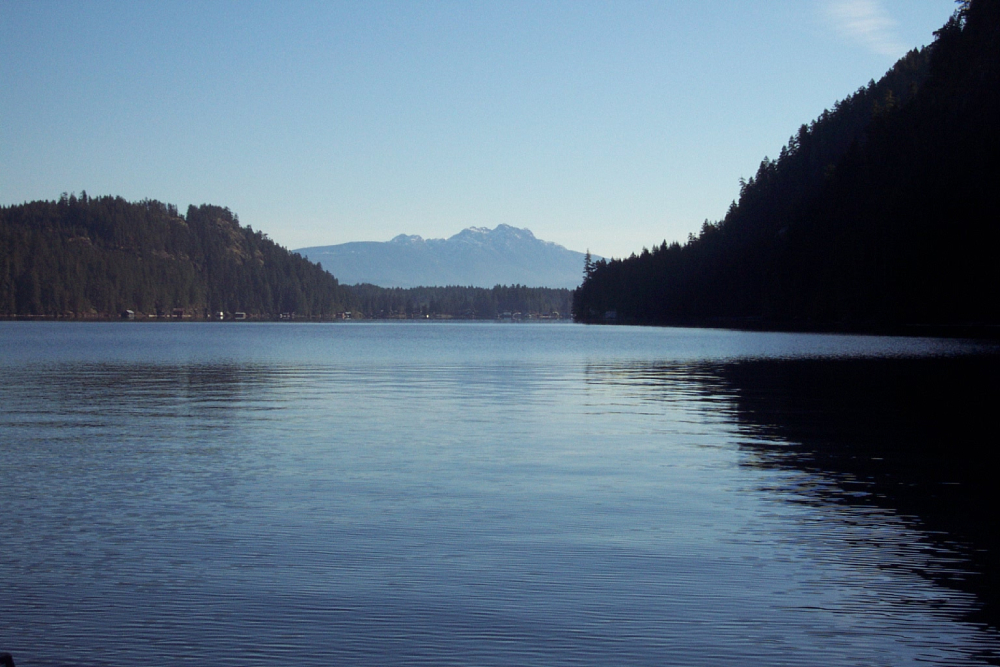As the long dark days of winter set in, we enter into a time where many trees and animals sleep. It’s a time for them to restore themselves and take a good rest. We can learn from this.
The first day of winter, the solstice, is a very important day for many First Nations peoples. It’s a time when the Earth turns. My aunt often told me if you listen hard enough, you can hear it turn when the solstice arrives. It’s a day to be respected, to sit still and to feel the power of Mother Earth. To the Hupacasath First Nation, it is the start of a new year and to me, Jan. 1 is a non-event.
For Hupacasath, in our language, December is known as the Youngest Sibling Moon, January as the Elder Sibling Moon, and February as the False Spawning Moon.
For the Hupacasath-Nuu-chah-nulth people, winter was a time to prepare for spring. It was the season to make rope out of materials like cedar bark and roots that had been gathered and dried during spring and summer. It was also time to make tools out of bones, hardwoods, sinew, shells, pitch and rocks.
Our people were very innovative and clever in making tools to meet our needs. Fishing and gathering of shellfish continued during the winter months and included horse clams, little mussels, big mussels, little chitons, gooseneck barnacles and abalone. It was also a time for ceremony and feasts and a lot of singing and dancing to pass the long winter months.
Times have changed, but some things have not. Winter is the time to enjoy the fruits of your labour during spring, summer and fall. Eating different kinds of fish and meat that has been dried, canned or smoked. Eating frozen or jarred berries, or the jam you made from the various berries like blackberry, huckleberry and salmon berries. Using cedar bark or grass to make regalia or other crafts. Using medicinal plants and medicines to keep healthy.
Winter can be a bountiful time if you prepared for it. This year we may face meat shortages due to highway closures, flooding of farmlands and gas rationing. I know that I can live on my canned and frozen sockeye, halibut and smoked black cod that’s in my freezer and cupboards. I am lucky that I would have all this nutritious food based on my right to harvest fish. Those long hours of preparing fish for storage were worth it.
Winter is a time of reflection, a time to think on what has happened in the past year and to look forward to spring with new growth and life.
This winter, I’ll be thinking of the new life ahead of me. I almost lost my life in a float plane accident at the end of July, and the Creator chose to spare my life. With that new life, I have a responsibility to make the most of it, and to make good changes. I am thinking on what that looks like and planning action on what that will take. The float plane accident itself made me aware that the laws and regulations around water aerodromes are insufficient to make our people safe. I need to work on ensuring the safety of people using water aerodromes. They do not need to go through the trauma I did.
Also top of mind is continuing to advocate for justice for Nuu-chah-nulth, as three of our members have been shot and killed by police, and I must help change things to eradicate racism. As well, working towards First Nations’ jurisdiction over health. We must have control over health in our nations and not be subject to the province making decisions for us. We know best what the needs are for our people, to provide them with culturally sensitive services, and we must have power over decisions that affect our lives.
And in my own personal life, I’d like to spend and enjoy time with family and friends and live life to its fullest. Life is too precious to waste a moment and every day we have is a gift, including winter times.
Winter reminds me of how we would use our longhouses to live in through the winter, warm and supported by family and community. Contrast this with the number of homeless people who are out weathering the atmospheric rivers, the cold and the winds that we’ve been experiencing. Much work has to be done to care for our people who have inadequate or no homes. No one should have to face the elements like this especially in winter.
While the trees and plants sleep, they still have a large presence in our lives. Driving through groves of trees like cathedrals above and around you, you can feel their strength and know they could tell you many stories of everything they have witnessed through their lives. They have endured so much this year with extreme temperatures, deluges of water and mighty winds.
Meanwhile, people in B.C. are fighting about the future of forests. Should we cut or defer cutting old growth? Should First Nations manage their own forest to their own standards and values? Should people be able to blockade companies for entering forests and cutting for economic purposes?
Trees must be valued for what they bring into our lives: productive forests with invaluable ecosystems and biodiversity, shelter for animals and birds, beauty and wonder. As people fight over what is best for our forests, the evergreens remain as sentinels — a constant reminder that they remain the same year-round but for now they sleep and rejuvenate from a hard year. Forests are worth fighting for, and my voice will reflect this.
I’ve always loved living on the West Coast where winter rain is what we experience the most with few cold days. As a Hupacasath person, I know our territory is a blessing to us, rich in fish, wildlife, berries, plants and so much more. For many years what we had was in abundance. We were able to live our way of life that made use of every part of our territory and made us rich people. This has been changing due to climate change, and winter is a time that it becomes more apparent.
Our territory has so much water, large lakes, rivers and creeks. Water is needed for the plants and trees and all of life. Rain fills up creeks and rivers for the salmon. Snow arrives in the mountains, and we hope snow remains for all of winter and into spring, as it means there will be a good run of sockeye and Chinook salmon into our rivers. We now use this water for a run-of-river power project that creates clean energy and reduces greenhouse gas emissions.
With climate change, the weather has changed dramatically, and we experience torrential rains, soaring temperatures, flooding, droughts and forest fires that remind us that our behaviours as humans have impacted that which we value. We need to act quickly so we can mitigate global warming. We are in a climate emergency, and 2050 is too long away to reduce our greenhouse gas emissions. As I drive around Hupacasath territory, I know it is worth saving, and winter gives us time to focus on what each of us can do to help Mother Earth.
Winter has short days of light. You wake up in the dark, and night comes early. Some people get depressed without long days of light. It’s during this time that we need to make sure we keep our families and friends close and do the things we enjoy so we can create our own light in our lives just as we kept the fires burning in our longhouse through the winter chill.
Winter is like hope. Every day following the powerful solstice brings just a little bit more light, and when spring finally arrives, you appreciate the longer daylight and signs of new growth and the emergence of the animals who’ve been hibernating.
Every season has a purpose, and appreciating the wonderful qualities of winter is important. Remember that without the dark, we cannot appreciate the light.
Happy holidays, readers. Our comment threads will be closed until Jan. 3 to give our moderators a break. See you in 2022! ![]()
Read more: Indigenous, Health, Environment















